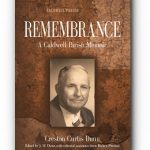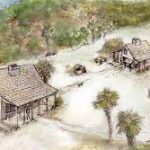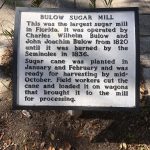Days of the Dead: A Short Story by Rickey Pittman
Tell me how you die and I’ll tell you who you are.—Octavio Paz
October 1999
Outside the Huntsville State Penitentiary, I waited for the bus. Glancing at the razor wire fence, I wondered what I had lost inside. Four years ago a drunk at a Halloween party decided he wanted to fight. I won the scrap, but nearly killed the man in the process, so Texas charged me with vicious assault and sent me to Huntsville, which in turn viciously assaulted me. I shook my head, willing the nightmares to vanish, but they clung—web-like, dirty.
Two other released inmates stood with me—Vic, a Mexican who had befriended me early in my sentence and another Mexican I didn’t know. When the bus arrived, the stranger hurried toward the open door, bumping me.
“Lo siento,” he said.
“You just naturally clumsy, bean-eater, or do you work at it?” I said.
He wagged his finger. “Ah, the crazy one. Always angry and starting fights he can not win.”
Vic stepped between us and placed his hand on my shoulder. “He is right, Justin. No trouble today, okay? We all leave Huntsville and go home.” He patted me on the shoulder and nudged me toward the bus.
I gritted my teeth and stepped inside, sharing a seat with Vic. He grinned. “Is good to not be a prisoner now, eh, Justin? But you do not seem happy.”
“It doesn’t seem real yet. My head’s still inside.”
He shifted his eyes toward the prison. “Who is to say when freedom is real? What will you do in Dallas?”
“I’m going to stay with my parents for a while. Let my head clear, find a job if I can. All that shit.”
As the bus moved out onto the highway, he stared at the fallow fields and pastures. “I too go to Dallas. In time to celebrate Los Dias de Los Muertos with my family.”
“What is this Days of the Dead?”
“I’m happy you remember the Spanish I taught you. It is a festival which begins the last day of this month.” He held up three fingers. “For three days we honor death and the dead ones.”
“Happy Halloween,” I said.
“No, it is not the same.”
I leaned my head against the window and closed my eyes while Vic rattled on about the Days of the Dead. As I drifted into sleep, I heard him singing softly of bandits and white scorpions in the mountains of Durango.
* * *
I paused outside the white frame house of my childhood on Lanoue Street, studying the chain link fence veiled with honeysuckle vines, the gardenia bushes, the concrete porch with its chipped edge. I looked up at the belly of a 747 on its roaring descent into Love Field. Shaking off the sensory overload, I walked inside.
My father sat in his Lazy Boy, staring at the television. Mother was wiping off the dining room table. When she saw me, a choking sound came out of her mouth as she tried to say my name. She pressed the dishtowel against her mouth as if she wanted to keep something inside, then she hurried over and embraced me.
“You’re home at last!” she said, rubbing fiercely at the tears on her cheek. “Justin, Oh, Justin!”
My father rose slowly from his chair, shuffled over and wrapped his strong arms around us. The sound of their weeping tore my guts out.
“Hey,” I said. “It’s alright. You knew I’d make it out okay.” I glanced around the room. “Where’s Jimmy and Shelby? I thought you said they’d be here.”
They wailed louder. It was an hour before they had the control to tell me what had happened. The next day I booked a flight to Guadalajara.
* * *
On Highway 15 outside of Culiacán, the bus stopped at a ranch and discharged three passengers—men speaking an Indian dialect and wearing cowboy hats, serapes, cotton pants, and huarache sandals. As I watched them walk toward the ranch house, I heard several bursts from an automatic rifle.
The man next to me was reading a Guadalajara bilingual newspaper. He didn’t seem to notice the loud gunfire.
“Who is firing the machine gun?” I asked.
He glanced up from his paper. “Los narcos,” he said, and with his lips he made like he spat. He glanced at the copy of Fodor’s Mexico in my lap. “You are American? You are sightseeing?”
“I’m going to Culiacán,” I said.
“Culiacán is my city. We do not often see Americanos. Except for our eighteenth century cathedral, there is little that tourists want to see. Why do you travel there?”
“I’m going to ship the bodies of my brother and his fiancée back to the states. They were murdered there last week.”
He nodded. “I am sorry for your loss,” he said, then lit a cigarette and lost himself in the newspaper.
At the bus station in Culiacán, I took a cab to the home of Rafael Gonzales, a reporter for Noroeste, Culiacán’s newspaper. The American consulate in Guadalajara knew Rafael personally and had persuaded him to help me transport Shelby and Jimmy back to the states.
Stepping out of the cab, I followed a trail of yellow marigold petals strewn from the road to the scrolled-iron gate in front of the modest stucco house. The wrought iron fence on either side of the gate was connected to high concrete block walls marking the property line. Above the wall to my left, I saw the blackened windows of a neighbor’s two-story house. I rattled the gate and called out, “Señor Rafael Gonzales, por favor!”
The dark oak door of the house opened, and a man stepped out. He scanned the street both directions before he looked at me.
“Señor Rafael Gonzalez?” I asked.
“Yes.”
“I’m Justin.”
“Ah, yes. Please, come inside. You are welcome here.”
I opened the gate and walked through the concrete front yard toward the porch. The yard was carefully landscaped with benches and pots and raised beds in which were planted gardenias, poinsettias, orange and avocado trees. Rafael shook my hand and motioned me inside.
“I trust your trip was without incident?” he said.
“It’s not like being on an American bus, but at least it didn’t break down. I heard Mexican busses are bad to do that.”
He laughed. “Sometimes our busses deserve their reputation.” He led me by the arm to the sala, the family living room, where several family members stood on the tessellated tile floor. “Justin, allow me to present my family. My wife, Veronica; my son, Miguel; my daughter. Raquel; my mother, Señora Gonzales; and my wife’s brother, Earnesto.”
“Con mucho gusto,” I said.
The adults smiled, and the two children, both in their early teens, giggled—I guessed because of my accent. Vic had taught me functional Spanish in Huntsville, but learning Spanish from that Tex-Mex is a lot like learning English from a redneck.
“It is our pleasure, sir,” Miguel said in perfect English.
Rafael placed his hand on my shoulder. “This is Justin. The occasion that brings him our way is unfortunate, but he will be our guest this week. Justin, let us sit and talk a moment.”
We moved to a red velvet sofa in front of the fireplace. Rafael’s wife, mother, and daughter excused themselves and withdrew into the kitchen. Miguel retired to his room, and Earnesto, who wore a police uniform, sat in a chair in front of a desk cleaning a small pistol. When Rafael looked at him, he sighed, rolled his eyes, nodded, and slipped the pistol into a desk drawer.
Next to the desk, a small rectangular table had been converted into an altar. On the white tablecloth sat three framed photographs surrounded by flowers, burning candles, candy skulls, chocolate skeletons and miniature maraipancoffins, a pack of cigarettes, a glass of water, a bottle of tequila, and an oval loaf of sweet bread.
“The ofrenda is beautiful, is it not?” Rafael asked.
“Yes. The first such altar I’ve seen.”
“Ah, come and take a closer look.”
We rose and walked to the altar.
“Justin, have you ever celebrated Los Dias de los Muertos?”
“No,” I said. “But a friend of mine told me a little about it. In America, this time of year we observe Halloween.”
“Our feast has none of the terror Americans like to attach to Halloween. We use the time to reflect on those who have died, and we seek to come to terms with our own certain death.” One by one, he lightly touched each photograph. “My father, my wife’s mother. The little one is my sister who died when she was very young. Now she is one of the angelitos. Every year, I tell my children about them, things they did not know before—their favorite foods, jokes they played on others, things they said, how they died. It is important to remember the dead. My father often said the dead die only when they die in our hearts.”
Rafael picked up the photo of his father. “My father was a journalist as I am. He was assassinated in Mexico City. Journalism in Mexico can be a very dangerous occupation. But he believed that one courageous soul could make a difference. Do you think one man can make a difference, Justin?”
“I don’t know. I’d like to think so,” I said, looking at Rafael. His face was young, but his dark eyes were the weary eyes of an old man, like the eyes of the hard priest in Texas who had known me in confession all my life.
A painting of a skeletal lady wearing a plumed hat was hung above the fireplace. I pointed to it. “Who is she?” I asked. “Not another relative I hope.”
Rafael laughed. “She is death, La Katarina, the beautiful lady of our feast. She visits each of us when it is time to die—sometimes violently, sometimes she comes as softly as a whisper. My son has written many calaveras, many poems and songs about La Katarina. Would you like to hear one?”
“Sure.”
“Miguel, ben aqui,” he called out.
His son ran to us from his room, a calacas in his hands. He raised the skeleton and pulled a string that caused it to smile and flap its arms and legs as if it were dancing.
“Sing us the song you wrote for the holiday,” Rafael said.
“¿En Español o Inglés?” Miguel said.
“Inglés.”
Miguel closed his eyes and sang out:
I danced with death and did not know her,
And the out-of-tune violin
Played on through the night
To a song that had no end.
And as we danced, I wondered,
When would the music end?
She said, “This dance will last until
You fall, like other dying men.”
She had soft hands and a pretty face,
She whispered secrets in my ear,
Her eyes looked deep inside my heart,
And she shed a single tear.
A warm embrace she gave me,
And the world began to spin,
Her fingers reached for my hand,
The fate of dying men.
When we applauded, Miguel bowed.
“You have a talented boy,” I said.
Rafael lifted the boy’s chin and smiled affectionately. “Yes, we are very proud.”
“Papa, may I turn on the radio?” Miguel asked.
“Yes, but not too loud.”
Miguel ran to the stereo and turned it on. He talked to the calacas, whose bony arms and legs danced wildly to the beat of the music as he pulled the strings.
“I saw some kids playing with those skeleton toys at the airport,” I said.
“The toys entertain, but they also teach. In Mexico, we want a child’s first acquaintance with death to be a cheerful one.”
“I try not to think about death.”
“Ah, but she thinks of you,” he said.
Rafael’s wife and daughter returned to the sala with a tray of coffee, Coca-Colas, and cookies. Earnesto left his corner chair and joined us in front of the fireplace for the evening merienda.
“I am sorry for the loss of your brother and his fiancée,” Rafael said. “¡Que en paz descansen! Es muy triste, very sad. It must be a great burden to bear, and attending to the details of death requires more strength than many have.”
“I’ve got the strength,” I said. I tapped my fingers on the sofa arm to the beat of a song on the radio.
Rafael placed his hand on top of mine and pressed my fingers down so that they ceased their tapping. “When your Spanish has improved, you will not enjoy this song. It’s called, ‘La Piñata,’ a corrido, a ballad about a drug lord’s party where bags of cocaine were stuffed into a piñata. A song about a man very much like the man who murdered your brother.”
“You know who killed Jimmy?”
“Yes. Would you like to know?”
“Yes, I would.”
“Veronica, bring me my briefcase.” Rafael leaned back on the sofa. “He is a drug dealer. Unfortunately, in the minds of many, the drug lords are like your famous Robin Hood. They throw people money because they love to be seen as generous benefactors who help the poor. Across from the capitol is a shrine devoted to Jesus Malverde, a narco who came from this area. On the same street is a chapel dedicated to his memory. Throughout Mexico we have monuments and songs dedicated to lawless men who steal girls from the poor barrios and kill anyone who asks too many questions or who tries to stop them. Once the Mariachis sang of love, the family, love of our land. Now . . . things are very different.”
Veronica brought Rafael a leather attaché. He opened it and searched through the papers until he found a photograph. “This is the man—Roberto Cruz de la Cruz.”
I took the photo and held it in my palm. Earnesto leaned over to take a look, raised his eyebrows, and shook his head.
“He’s smiling,” I said. “A man who kills people I love and smiles.”
“He believes he has much to smile about. Not long ago, he was just a local thug. Now, he is the leader of his own organization. And his status and brutality grows every week. Did the consulate tell you the circumstances of their death, how he killed them?”
“No, I don’t know any details.”
“Earnesto showed me a copy of the police report. Your brother entered a cantina which Cruz de la Cruz frequents every evening. Your brother spoke Spanish very well, so Cruz de la Cruz assumed that he was with the DEA. De la Cruz and his men took them to a hotel room where they were raped, beaten, and tortured with ice picks. The police found the girl nude, on the floor with her back against the bed. Her arms were stretched out and nailed to the posts of the headboard. Your brother’s face was stuffed into the toilet.”
The images knotted up my insides. “What cantina did they go to?”
“A small one near the plaza.”
“What are the police going to do?”
He glanced at Earnesto. “What the authorities usually do here when los narcos commit a crime—nothing.”
“Con permiso,” Earnesto said. He stood, snatched a Coke from the tray, and walked outside to the patio.
“Did he understand us?” I asked.
“He does not speak English, but he recognized Crus de la Cruz’s photograph, so he knew what we spoke about.”
Veronica came to Rafael and placed her hand on his shoulder. “It is time to go to the cemetery,” she said.
Rafael took her hand and kissed it. “Of course. The time had escaped me. Come walk with us to the cemetery, Justin.”
I followed the Gonzales household outside. Many other families were on the streets, walking and laughing together. Fireworks filled the sky. A parade of singing, costumed people passed us, led by a skeleton with a violin. Following him were skeletal grooms arm in arm with ghoulish brides, ghosts, mummies, and four men carrying a coffin containing a smiling corpse to whom people tossed oranges, flowers, and candy. Mummers followed the coffin, wildly shouting and running about in pursuit of the stubborn dead souls attending the feast.
In the cemetery, families gathered around altars constructed near the graves of ancestors and loved ones. Almost every grave was elaborately decorated with colored paper and arches of flowers. In the flickering light of thousands of candles, the cemetery seemed alive, and the heady aroma of the flowers mingled with the distinctive fragrance of copal incense. A priest moved from tomb to tomb praying for the souls of the departed. When we reached the freshly repainted tombs of Rafael’s father and sister, Earnesto lit several candles and votives and placed them on the vaults. With an arm around each child, Rafael told us stories about his father and sister while Veronica laid out a mole dish and tamales. After we ate, Rafael opened a bottle of tequila and he poured each adult a generous portion and we toasted the dead. Several toasts and stories later, the bottle of tequila was empty.
A mariachi band made its way through the cemetery playing the favorite songs of the deceased. When they reached Rafael’s family, he requested a tune, tipped them, and they began a ballad. The song was slow, waltz-like, with a sad tone. Rafael danced with his wife, Earnesto with Rafael’s mother, and Miguel danced with his sister.
I watched for a few minutes, then strolled alone through the cemetery. Stopping for a moment to listen to another mariachi band, I felt a soft hand on my arm. I turned and looked into the black-pearl eyes of a beautiful young woman. She wore a white cotton dress and her long dark hair was pulled tightly back.
She slid her hand from my arm into my hand. “Baila conmigo.”
“Con mucho gusto. I would love to dance,” I said and placed my hand on her waist. When I took uncertain steps to the music, she took the lead, gracefully swirling me about.
“You have sadness in your eyes,” she said.
Her English surprised me. I didn’t know exactly what to say or how to say it, so I only nodded.
“Things will be okay,” she said. “What do you call yourself?”
“Justin. And you, what is your name?”
“Catrina,” she said. “Is this not beautiful—the lights, the flowers, the families? I am sure the angelitos are happy.”
When the song ended, we applauded the band and she embraced me. “Thank you for the dance,” she whispered in my ear. “Vas a verme una vez mas.”
I watched the mariachis stroll on to the next family, and when I turned to talk to the girl, she was gone. I walked back to my friends. Rafael stood behind Veronica with his arms around her waist.
“My new friend,” he said. “Did you have a pleasant walk?”
“Yeah, I did. I met a girl and we danced. She was a beauty, too.”
“Where is she?”
“I don’t know, but she said she’d see me again.”
* * *
AT dawn, we returned to Rafael’s home. I fell into bed, my head buzzing from tequila. A tapping noise woke me later that morning. I sat up in my bed and watched two hummingbirds hover near the window. I put on the robe and rubber flip-flops Vernoica had laid out for me, pulled a towel from my suitcase, and walked to the shower stall in the small open-air wash area. After I showered and dressed, I joined Rafael and his family on the patio for a breakfast of eggs, fried potatoes, corn tortillas, beans, and coffee.
After breakfast, Rafael drove me to the police station where I presented the transit permit and consulate letter. At the funeral home, I obtained the death certificates, proof of embalming, and letters of no contagious disease that I would need at the airport. Rafael and I followed the funeral director’s hearse to the airport, and there I presented my papers and signed another mountain of forms. The sealed steel crates holding Jimmy’s and Shelby’s bodies were loaded onto a plane, and then Rafael drove us to his office. After he had parked, he glanced at his watch.
“I have an important deadline, so I must do some work in my office. You do not need to wait for me. You may take my car if you wish.”
“No thank you. I’ll just walk around town for a while. I’ll take a cab to your home later.”
I left Rafael and strolled through Culiacán. At the plaza, I sat on a bench in the shade. Monarch butterflies covered many of the trees around me, and it seemed as if the limbs were full of orange flowers. Occasionally, the wind or noise would stir them and they rose above the plaza in clouds of color.
I watched the families and young people of Culiacán as they strolled around the plaza. Across the street, I could see the cantina where Jimmy and Shelby had eaten their last meal.
A pair of young girls passed my bench and I saw they had each other’s names embroidered on their jackets. When two boys flirted with them, the girls hissed. Laughing, the boys sat down on my bench. They were eating jalapeño Popsicles.
“Hello. You are American?” one asked.
“Yes. I’m from Dallas, Texas.”
“Dallas? It is good. You are wealthy American like J.R.?”
“No.”
When a young girl and her mother walked by, the boys called out, “Oye, Suegra!”
The girl ignored them, but her mother turned and smiled.
“Is she your mother-in-law?” I asked one of the boys.
“No, no. It is a compliment, a way of saying I would like for her to be my mother-in-law. Do you have a novia, a girlfriend?”
“I did meet a girl at the festival last night. I liked her very much, but I haven’t seen her today.”
“Perhaps you will see her soon,” he said.
A small orange cloud hovered above us. I held out my arm and two butterflies lit on my hand.
“Ay!” one of the boys said. “¡Como estraño! We think of the butterflies as the returning souls of the dead. Two in the spirit world must be thinking of you.”
“Yeah. And I think of them too.” I lifted my arm and the butterflies floated into the sky.
I rose and joined the crowd’s plaza perambulations, walking for nearly an hour, hoping to see Catrina again. I thought of her soft hands on my arm, the warmth of her breasts pressed against me while we danced. At sunset, I walked toward the capitol. I came upon the Jesus Malverde shrine housed in a large blue metal shed. Inside, there was a gift shop with a large showcase of silver belt buckles, necklaces, key chains, and bottle openers—all bearing Malverde’s image. Polaroids and handwritten notes of thanks for miracles were taped to the walls. One glass case, with a flickering candle on its top, contained a tiny pair of crutches and a cast of a child’s leg. A handwritten note indicated these items had been donated by a family in Stockton, California. In a corner, a man knelt praying. In front of him lay a baggie of hair and a set of false teeth. I heard him thank Malverde for helping him and his brother survive a San Quentin prison term.
At the door, I read the inscription on a plaque. It had been donated by Roberto Cruz de la Cruz.
As I walked away from the shrine, my anger toward Cruz de la Cruz grew. I remembered a time when a Bachman Lake bully jumped my brother outside a bowling alley in Dallas. I came on him as he was kicking in my brother’s ribs. Picking up a two-by-four, I stove his head in. I lifted my brother from the ground and used my T-shirt to wipe the blood from his face. “No one will ever hurt you and get away with it,” I promised him.
I had seen men like de la Cruz in Huntsville. Men with no conscience, no insides. Bullies. Men who thought they were invincible. I also saw a few of these bullies who learned they could bleed and die just like the men they victimized and intimidated. “No one, ever,” I said to myself.
When I neared the plaza, I flagged a cab and returned to Rafael’s house. I directed the driver to wait for me. Inside, I found Rafael’s family eating supper on the patio.
“Justin, I was worried. Come join us for supper,” Rafael said.
“No thanks. I’ve already eaten, and I’ve got a cab outside. I’ve got to go back to town.”
“He’s probably going to meet a girl,” Miguel said.
On my way out, I passed through the sala, opened the desk drawer, and slipped Earnesto’s pistol into my pocket. I directed the taxi to take me to the cantina where Rafael said Cruz de la Cruz spent his evenings.
* * *
THE Hispanic next to me wore a braided leather necklace with an attached cameo of Jesus Malverde. I could see the outline of what I supposed was a shoulder holster beneath his linen jacket. He chugged down a Corona, then laid a gold cocaine spoon on the bar’s countertop. On the spoon’s handle was a nude figurine of a crucified woman. Her eyes and mouth were slightly open and her head was bent forward so that her long hair fell across her face. The man studied the spoon a moment, then tapped it twice with his fingertips. He smiled, then slipped the spoon back into his shirt pocket. He signaled the bartender to bring each of us another beer.
“Gracias,” I said.
“De nada. But it is no necessary to speak Spanish. I speakeh perfect Englis.”
“I can see that. You have a beautiful city.”
“Ah, you are a tourista. To you Americanos, any foreign city is beautiful. It is, come se dice, ‘exotic’? Where are you from in America, my friend?”
“Dallas, Texas. And you? Where are you from in Mexico?”
“From the mountains of Durango, the land of the white scorpion.”
“The white scorpion, rare and deadly,” I said.
“Is good you know of such things.”
“Yeah, I guess.” In the background I could hear a corrido about some Sinaloan mountain hick. I listened carefully to the words:
They say this man is very bad,
Señores, I don’t believe it,
Because he is legendary and valiant,
Because of this they are scared of him,
But at the bottom of his soul,
He is a sincere friend.
“I don’t need a friend like that,” I muttered as the song ended.
“What?” he said. “You do not like the ballad?”
“Sorry. Just thinking aloud.”
Two men entered the restaurant and he stood up. “You must excuse me. My boss has arrived. You know of him?”
I glanced at the mirror and recognized one of the two as Cruz de la Cruz. “No,” I said. With my right hand, I reached into the pocket of my trousers and wrapped my fingers around the handle of the five shot Smith and Wesson .38 revolver.
He patted me on the back. “Is good. Is best this way.” He signaled the bartender to bring me another beer, threw a hundred-dollar bill on the bar, walked to the pair, and kissed the hand of Cruz de la Cruz.
I sipped my beer and watched as people in the cantina acknowledged Cruz de la Cruz with smiles and handshakes. Cruz de la Cruz motioned one old man over, pulled several folded Franklins from his pocket and handed the wad of bills to him. The man wept when Cruz de la Cruz embraced him. Cruz de la Cruz pointed at a table and he and his men sat down.
Nothing to it, I told myself. Three men. You have five shots in the pistol. Don’t miss. Do it and then haul ass. I drained the beer and walked over to their table.
The man I had talked with at the bar was sitting next to Cruz de la Cruz. “¿Que quieres, Americano?”
“I want to speak to Señor Tonto.” I pointed to Cruz de la Cruz.
“¿Mande?”
He frowned, so I knew he understood me. His eyes shifted to Cruz de la Cruz. I yanked the pistol from my pocket, pointed at the head of de la Cruz, and pulled the trigger.
The hammer snapped loudly on the defective shell. “Shit!” I said and pulled the trigger again. Snap.
The bullets from their guns plowed into my chest, pushing and whirling me back from the table. I heard screaming and shouting as my back and head slammed against the tile floor. I stared at the swirling decoupage of faces above me until my eyes settled on Jimmy and Shelby. Next to my brother stood Catrina. She smiled sadly and held out her hand.
 I highly recommend you obtain and read this novel. Read more about this award-winning author at lonniewhitaker.com I am sure you will be interested in his other writings as well.
I highly recommend you obtain and read this novel. Read more about this award-winning author at lonniewhitaker.com I am sure you will be interested in his other writings as well.


 Remembrance: A Caldwell Parish Memoir was created by Billy Dunn, son of Creston Curtis Dunn, and one that I assisted with editing. If you are interested at all in Louisiana history, this is a book you should add to your library. It is available in print or ebook form.
Remembrance: A Caldwell Parish Memoir was created by Billy Dunn, son of Creston Curtis Dunn, and one that I assisted with editing. If you are interested at all in Louisiana history, this is a book you should add to your library. It is available in print or ebook form.




